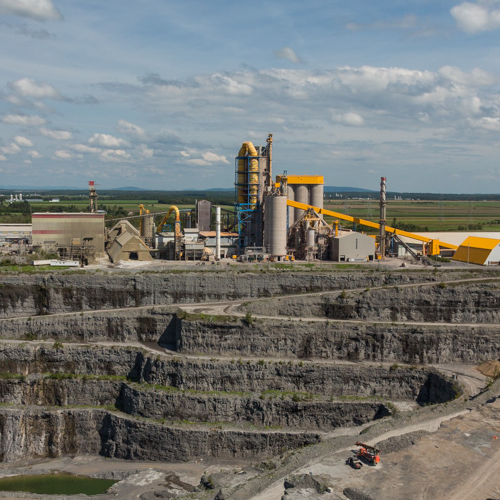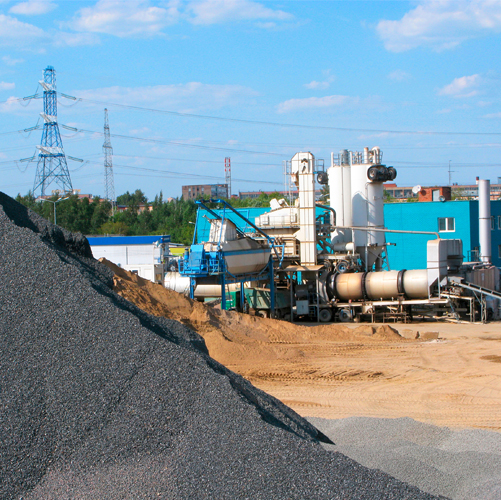Operating results with natural gas compared to heavy fuel oil: 5% more efficient, 25% less CO2 emissions, 36% less nitrogen oxides, 75% less particles and elimination of sulphur dioxide.
The performance of natural gas-fired industrial boilers is better in terms of energy efficiency, the environment and reduced operating expenses when compared to heavy fuel oil (#6 fuel oil). Finally, choosing natural gas contributes to reducing greenhouse gases, responsible for global warming, and to controlling air pollution, responsible for smog and acid rain.
Energy efficiency advantage
Customers’ concerns about energy costs and energy efficiency led Gaz Métro to evaluate the respective efficiency of using #6 fuel oil or natural gas. The work was performed by the Natural Gas Technologies Center and the data used in the results come from analyzing seven industrial boilers.
Results of analyses
| Results of analyses | |
| Number of boilers: | 7 |
| Highest efficiency | 83% |
| Lowest efficiency | 78% |
| Average | 80% |
It was found that the average efficiency on an annual basis was 80% for the customers who were evaluated. This result is based on real data. Of course, in order to demonstrate the real efficiency of using energy sources, a complete systems analysis was needed. Comparison of system efficiency Industry tends to choose the energy that offers the best combustion efficiency, without necessarily including the other expenses inherent in its use.
The #6 oil would seem to be the most efficient energy (85.05%). It is generally rated at a combustion efficiency 3% higher than natural gas (82.05%). However, the use of this fuel results in substantial losses in efficiency that must be considered. These fuel oil-specific losses are around 8%, while the losses common to both energy sources are 1.95%.
Ultimately, a natural gas system is 5% more efficient, based on an overall evaluation of losses (see table).
Comparison of overall systems efficiency
| Natural gas | Fuel oil | |
| Combustion efficiency | 82.05% | 85.05% |
| Type of loss | Natural gas | Fuel oil |
| Oil tank heating loss | — | 0.55% |
| Oil preheating loss | — | 0.20% |
| Loss in the soot blowers | — | 0.45% |
| Smoke side clogging | — | 2.00% |
| Oil atomization | — | 1.65% |
| Loss for additional water and water treatment chemicals | — | 0.35% |
| Oil pumping loss | — | 0.20% |
| Premature corrosion and maintenance loss | — | 2.00% |
| Oil additives | — | 0.60% |
| Radiation loss | 1.25% | 1.25% |
| Purge losses | 0.70% | 0.70% |
| Total losses | 1.95% | 9.95% |
| Natural gas | Fuel oil | |
| Overall efficiency (combustion efficiency minus losses) | 80.10% | 75.10% |
| Overall gain in favour of natural gas | 5,00% |
Sources: Compilation of Air Pollution Emission Factors, AP-42, Fifth Edition, Volume I:
Stationary Point and Area Sources. U.S. EPA. www.epa.gov/ttn/chief/ap42/index.html
Environmental advantage
Natural gas is the cleanest hydrocarbon. It permits reducing almost all air pollutants, including greenhouse gases. A study produced by the Natural Gas Technologies Centre (NGTC) in 2004 and 2005 analyzed several scenarios and helps assign a value to these assertions. Here are some conclusions.
INDUSTRIAL BOILERS
Reduction of annual emissions if fuel oil is converted to natural gas
(in tonnes of reduction per 12.6 TWh/year of useful energy)
| AIR POLLUTANTS | GREENHOUSE GASES | ||||
| PM10 | PM2.5 | S02 | NOx | CO2 | |
| Particulate materials of 10 microns or less | Particulate materials of 2.5 microns or less | Sulphur dioxide | Nitrogen oxide | Carbon dioxide | |
| Natural gas | 329 | 329 | 14 | 4,557 | 2,880,000 |
| Fuel oil | 1,341 | 975 | 23,93 | 7,162 | 3,870,000 |
| Total tonnes reduced | 1,012 | 646 | 23,916 | 990 | |
| Total percentage reduction | 75.50% | 66.30% | 99.94% | 36.37% | 25.58% |
Use of industrial boilers and emission comparisons in Quebec
Overall, according to the Québec energy balance (Energy in Quebec 2002 – Ministère des Ressources Naturelles), if we subtract transportation activity, natural gas produces 59% of Quebec’s thermal energy, 45.5 TWh, while oil produces 41%, or 31.3 TWh.
Of this figure, the use of #6 fuel oil in industrial boilers (heavy fuel oil, calculated based on a 1% sulphur content) is estimated at 12.6 TWh (net energy). For this quantity of energy, the NGTC has estimated the impact on emissions of converting industrial steam production from fuel oil to gas. As indicated in the table, it can be concluded that natural gas has a beneficial effect in reducing urban smog, acid rain and CO2, the leading greenhouse gas responsible for global warming.
Substituting natural gas for oil in industry would reduce air pollution substantially and contribute to containing the growth of greenhouse gas emissions. Let’s hope that programs are put in place to accelerate this substitution so we can benefit more from what we can do today with natural gas, in practical terms, to reduce air pollution.
Richard Béraud, Eng.
Senior Technical Adviser
DATECH Group
Continue reading








